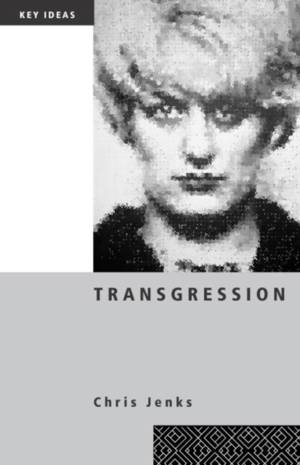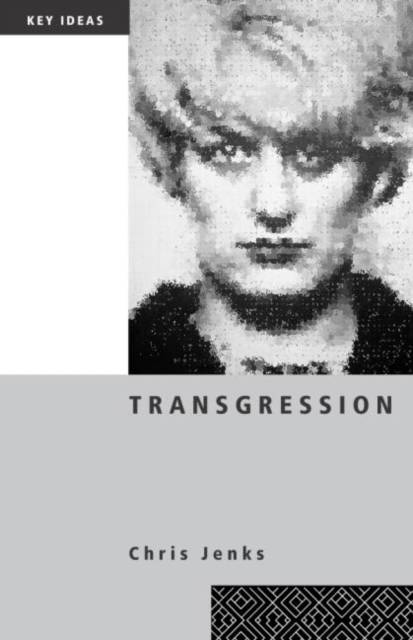
Bedankt voor het vertrouwen het afgelopen jaar! Om jou te bedanken bieden we GRATIS verzending (in België) aan op alles gedurende de hele maand januari.
- Afhalen na 1 uur in een winkel met voorraad
- In januari gratis thuislevering in België
- Ruim aanbod met 7 miljoen producten
Bedankt voor het vertrouwen het afgelopen jaar! Om jou te bedanken bieden we GRATIS verzending (in België) aan op alles gedurende de hele maand januari.
- Afhalen na 1 uur in een winkel met voorraad
- In januari gratis thuislevering in België
- Ruim aanbod met 7 miljoen producten
Zoeken
Omschrijving
Transgression is truly a key idea for our time. Society is created by constraint and boundaries, but as our culture is increasingly subject to uncertainty and flux we find it more and more difficult to determine where those boundaries lie. In this fast moving study, Chris Jenks ranges widely over the history of ideas, the major theorists, and the significant moments in the formation of the idea of transgression. He looks at the definition of the social and its boundaries by Durkheim, Douglas and Freud, at the German tradition of Hegel and Nietzsche and the increasing preoccupation with transgression itself in Baudelaire, Bataille and Foucault. The second half of the book looks at transgression in action in the East End myth of the Kray twins, in Artaud's theatre of cruelty, the spectacle of the Situationists and Bakhtin's analysis of carnival. Finally Jenks extends his treatment of transgression to its own extremity.
Specificaties
Betrokkenen
- Auteur(s):
- Uitgeverij:
Inhoud
- Aantal bladzijden:
- 216
- Taal:
- Engels
- Reeks:
Eigenschappen
- Productcode (EAN):
- 9780415257589
- Verschijningsdatum:
- 27/03/2003
- Uitvoering:
- Paperback
- Formaat:
- Trade paperback (VS)
- Afmetingen:
- 131 mm x 198 mm
- Gewicht:
- 244 g

Alleen bij Standaard Boekhandel
+ 158 punten op je klantenkaart van Standaard Boekhandel
Beoordelingen
We publiceren alleen reviews die voldoen aan de voorwaarden voor reviews. Bekijk onze voorwaarden voor reviews.









